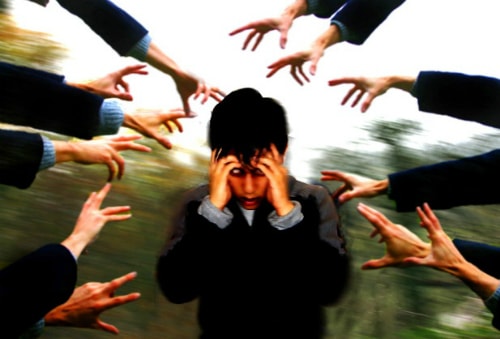Signs of schizophrenia
Schizophrenia can cause hallucinations and delusions, leading to behaviors that are dangerous to the patient and others.
» Grandmother suspected of strangling grandchild to death then drinking pesticide to commit suicide
» Grandmother murdered 20-day-old baby girl, disposed of body
According to Dr. Truong Thi Ngoc Lan, Deputy Director of the Ho Chi Minh City Traditional Medicine Institute, schizophrenia is a serious mental illness, affecting one in every 100 people, with varying degrees of severity. The disease manifests itself in many forms, but all share the common characteristic of affecting mental activities, which in the long term can change the patient's personality.
Studies have shown that schizophrenia symptoms often begin in young people and last throughout their lives. During this time, patients tend to withdraw from others, talk less with relatives, become depressed, anxious or fearful. Usually, the disease develops quickly with acute symptoms appearing within a few weeks, but it can also be slow for many months or years.
 |
Paranoia is a common symptom in schizophrenia patients. Illustration: geneticliteracyproject |
Scientists have not yet determined the main cause of schizophrenia. It is believed that the disease is caused by a combination of factors, such as:
Genetic factors: Schizophrenia tends to run in families. Usually the incidence is 1% of the population. In particular, if parents have schizophrenia, the incidence of the disease in children increases to 12%.
Biochemical factors: Several brain chemicals are thought to contribute to the disease, especially dopamine.
Family factors: There is currently no evidence to confirm that family instability causes schizophrenia. However, it is found that schizophrenic patients are more likely to relapse if they live in a stressful family atmosphere.
Environmental factors: Too much trauma (stress) in the surrounding environment can contribute to the development of schizophrenia.
People with schizophrenia may experience severe typical symptoms such as:
Paranoia:These are false ideas, inconsistent with reality, caused by mental illness but the patient believes them to be true, cannot be explained or criticized. The content of delusions is very diverse, the most common are:
- Delusions of grandeur: For example, thinking that one is a military commander even though one has never been in the army. Patients think that they can cure difficult diseases like cancer even though they have never studied medicine.
- Delusions of persecution: For example, the patient thinks that a neighbor or family member is trying to poison him.
- Delusion of being controlled: The patient thinks that there is an invisible force controlling all of his thoughts and actions.
Depending on the type of paranoia, the patient will have a number of corresponding reactions. For example, refusing to eat with the family and cooking separately because they suspect that someone is trying to poison them.
Virtual audio:Patients hear one or more imaginary voices in their heads or ears. The content of the hallucinations is often threatening, accusing, cursing, or mocking. They will have some reactions depending on the content of the hallucinations. For example, they will cover their ears when they hear the hallucinations cursing. Patients will have self-defense behaviors if the content of the hallucinations is threatening, even killing someone while thinking they are defending themselves.
Thinking disorders:The patient's speech becomes difficult to understand. He changes the subject or stops abruptly and then resumes the same topic a short while later. Sometimes the patient's speech is so incoherent that the listener has no idea what he is saying.
People with schizophrenia may have a number of less severe symptoms, such as:
Loss of will to work:The patient cannot continue to work well at work or study well at school. In more severe cases, he or she may no longer be able to do simple daily tasks such as sweeping the house, doing laundry, or cooking. The most serious is that the patient no longer pays attention to personal hygiene, does not bathe, and eats poorly. Note: This condition is caused by the disease, not by laziness.
Reduced emotional expression:The patient's emotional expression is greatly reduced. They do not react to happy or sad events or, on the contrary, appear sad when happy events occur and laugh when sad events occur.
Social distancing:The patient does not want to interact with other people, not even with family members. This may be because the disease reduces the ability to talk or the patient does not want to interact with other people because of paranoia, fearing that someone will harm him.
Not aware of being sick: Often many schizophrenic patients do not think they are sick and so refuse to see a doctor for treatment.
Dr. Ngoc Lan advises families that if they discover someone with one or more of the above symptoms, they should take the patient to a psychiatrist for examination and treatment as soon as possible. Schizophrenia is a chronic disease that requires lifelong treatment, even when symptoms have subsided.
Treatment includes medication and psychosocial therapy. In times of crisis or when the patient has severe symptoms, hospitalization is recommended to ensure their own safety and that of the community, good care, proper nutrition, adequate sleep, and basic personal hygiene.
According to VNE
| RELATED NEWS |
|---|


